Building capacity for wildfire response
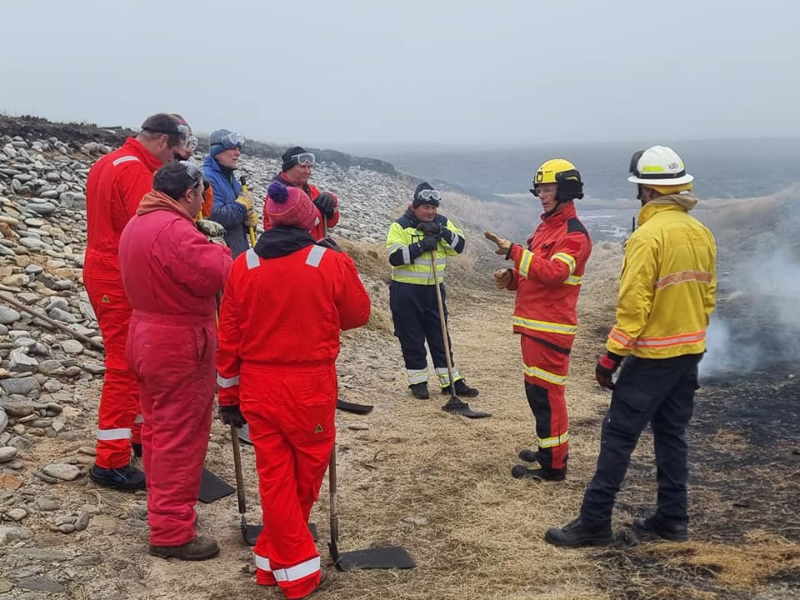
Instructors Andy Elliott and Dean Hodges delivering the VFO Course in Stanley. Credit - WildfireTaC.
Building capacity for vegetation wildfire response in a changing climate: Vegetation Fire Training
At the request of the Falkland Islands Government (FIG) Department of Agriculture, the Forestry Commission engaged Wildfire Training and Consultancy Ltd. (WildfireTaC) to deliver a suite of accredited Vegetation Fire training courses during April. This was the third visit by the team and built upon the foundations already laid in 2023.
Two instructors from WildfireTaC flew out to the Falkland Islands to deliver the training: Andy Elliott and Dean Hodges.
The schedule was packed with training courses in both Stanley and Fox Bay. As much as possible, the course paperwork was tailored to meet the needs of the Falkland Islanders, without compromising the accreditation.
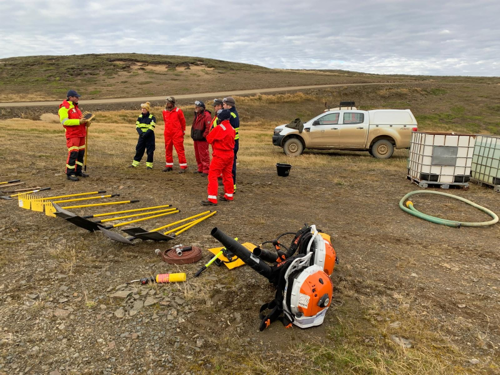
In total 28 people were trained and 67 accredited certificates have been achieved. The candidates were a mixture of Government Officers, farmers, and landowners from East and West Falklands and at least three other islands. Coincidentally, some of the attendees were also on-call Falkland Islands Fire & Rescue Service firefighters.
The feedback from the candidates has been very positive. It was encouraging to hear that some candidates had already started to take positive action between training modules. For example, one candidate described the changes that he would make to his farm to create buffer zones around his dwelling and farm structures. Another detailed how he had started writing his Wildfire Management Plan. The WildfireTaC team believe that the candidates now feel empowered to assist each other during wildfires. They stated that they would be prepared to volunteer, not only because they have the skills, but also because they have the personal protective equipment and knowledge to put their skills to best use in a safe way. The sense of community and the positive ‘can do’ attitude is very strong.
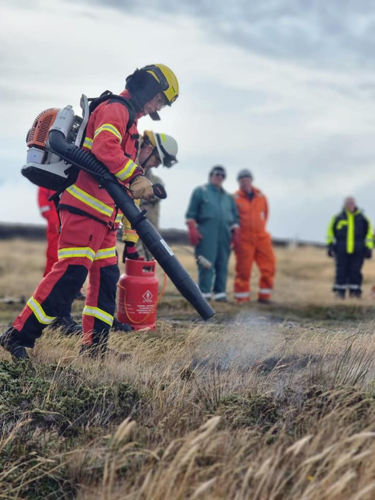
It is clear to the team that the Falkland Islanders all really care about their unique environment and landscapes. They are also very aware of the climate challenges facing them, not just from wildfires, but also other issues such as loss of peat from erosion.
The recent loss of habitat on several of the smaller Islands was clearly a concern to many. While both Andy and Dean are very experienced in wildfires and peat fires, tussac fires are new to them. Sea Lion Island had recently experienced a wildfire in tussac and diddle-dee heathland. The WildfireTaC team were invited to visit the island to take a closer look. The smouldering peat fire was still ongoing during the visit. This gave them a valuable opportunity to discuss in detail the challenges posed by this fire. The severity of the fire in the deep peat was clear to see, and attending the site and actively taking part in extinguishing smouldering hotspots was very valuable. There are several risks that the team had not fully considered; the challenges of access to the site and access to water were clear. The visit highlighted the risks to life and the environment including the loss of wildlife and nesting sites for birds.
During previous visits to the Falklands, the team had provided tools including leaf blowers and hand tools. The feedback regarding the new tools and techniques was positive from those that had used them on Sea Lion Island. The leaf blowers were used to good effect to contain the fire in short grass and diddle-dee. However, they were not effective in the tussac. The back packs and hand tools were also used to good effect to contain the fire in the diddle-dee heath. There is clear evidence of line being cut with hand tools and that it helped to contain the fire. The valuable lessons learned by the team will be carried forward into future training.
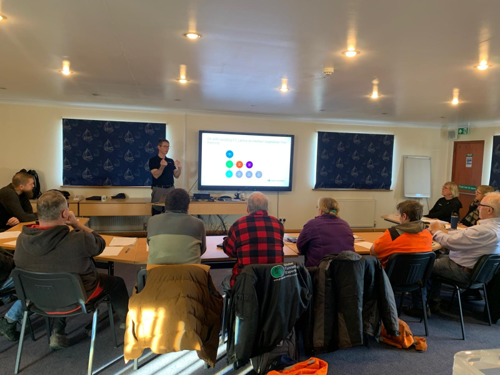
The opportunity was taken to extend some research work that was started in 2023. Since the first visit, the Department of Agriculture have been taking regular fuel moisture samples from local vegetation. The team have also taken samples away to test the ignitability and flammability of the vegetation. On this visit, it was agreed that some peat samples could be taken back to the UK where the ignition moisture content will be assessed. All of this may help us to create a Falkland Islands specific Fire Danger Rating System in the future.
Finally, both Andy and Dean would like to thank the Forestry Commission and Darwin Plus Local for the opportunity to deliver these training modules. Thank you to the candidates for their enthusiasm which made the delivery enjoyable and very interactive.
Written by Andy Elliott. For more information on this Darwin Plus Local project DPL00087, led by the Falkland Islands Government, Department of Agriculture, please click here.
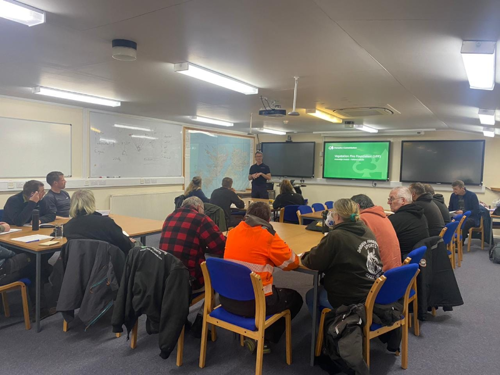

 Back
Back